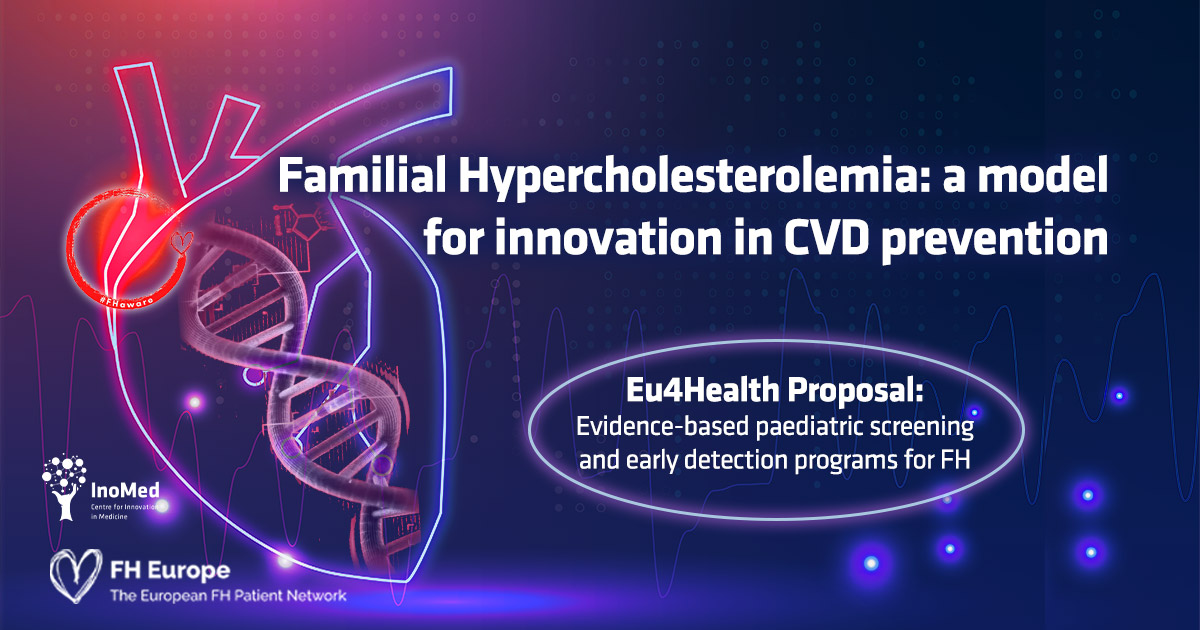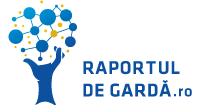Familial Hypercholesterolemia as a model for innovation in CVD prevention: evidence-based paediatric screening and early detection programs for FH at EU level
On September 10th, DG SANTE organized a webinar on the priorities, strategic orientations and the needs to be addressed through the EU4Health annual work programmes, building on the outcomes of the targeted consultation organized during the summer of 2021. EU4Health is the European Union’s response to the impact of the pandemic on patients, healthcare professionals and health systems across Europe. The new EU4Health Programme will go beyond preparing for public health crisis response and address the resilience of health systems. Disease prevention and health promotion represent the most urgent needs to be addressed in the next programming of EU4Health, starting with 2022, according to the inputs from diverse stakeholders (NGOs, associations, businesses, Member States’ policymakers, patients’ organizations).
Cardiovascular diseases (CVD) impact the lives of 60 million people in the EU and account for 36% of all deaths across the EU. Around 20% of all premature deaths (below the age of 65) in the EU are caused by CVD. CVDs are caused by so-called modifiable or non-modifiable (inherited, genetic) risk factors. The world’s most common and non-modifiable CVD risk factor is Familial Hypercholesterolemia (FH). Less than 10% of those born with FH, are diagnosed and adequately treated, leading to heart attacks, strokes, heart disease and deaths, early in life, even as early as 4 years of age.
During the webinar, Dr. Marius Geantă, President of the Centre for Innovation in Medicine and co-chair of the Scientific and Public Health Advisory Committee at FH Europe, presented a proposal on the implementation of evidence-based paediatric screening and early detection programs for FH at the EU level.
“For the 2022 Work Programme we propose the prioritization of cardiovascular diseases with a focus on prevention, early detection and screening, using innovative tools and approaches. One example could be Familial Hypercholesterolemia, one of the CVDs that already benefit from the advances in the field of genomics. Some member states already implement paediatric screening programs for FH (Slovenia, the Netherlands, Czech Republic, partially Germany, Austria) which could work as models for other countries.
Therefore, a solution that could fall under the Eu4Health Program’s objectives is to extend evidence-based pediatric screening and early detection programs to all EU member states. The objective is to identify FH as early as possible in the life course and to implement preventive measures in children in a personalized way.
This could result in a decrease in the number of premature myocardial infarctions in all countries through pediatric screening, early detection programs for FH and effective treatment as well as healthy lifestyle habits implementation.
At the EU level, we experience significant inequalities in the area of CVDs, in terms of access to prevention and screening programs, access to medical services and innovative treatments. A “combined”, “localized”, approach to pediatric screening and early detection for FH, based on the existing pediatric FH screening best practices, can and will catalyze implementation in all member states through twinning and teaming projects for the benefit of all European citizens (European Commission Public Health Best Practice Portal)”.
FH Europe’s Chief Executive, Magdalena Daccord, explained the importance of FH screening being recognized by the European Commission as a public health best practice model:
“This could serve as a pilot to implement preventative measures for Europe. We should move away from just fixing unhealthy populations to promoting and maintaining health. FH was noted by the WHO over 20 years ago as a ticking bomb and the biggest public health burden. We should use the best practice pilot and expand the idea of screening along with the member states. Investing European funds in FH detection and screening will turn into huge savings, of lives and costs for the health systems. My responsibility towards the FH community is to put forward the idea of FH as a pilot for the European Member States.”

Several events organized this autumn aim to place CVD higher on the health policy agenda in Europe.
Familial Hypercholesterolemia can become an evidence-based model of innovation in CVD. This year, during FH Awareness day, on September 24th, FH Europe will organize a webinar, which aims to answer the following questions:
- How has innovation changed life expectancy and quality of life for FH patients and their families?
- How can we imagine the future of FH and what is the role of patients and citizens?
- What role will data and technology play in FH management?
- Why should patients/citizens be interested in innovation and personalized medicine in cardiology?
The webinar will be moderated by Dr. Marius Geantă, President of the Centre for Innovation in Medicine and FH Europe Trustee and the agenda includes expert speakers such as Max Planck Institute for Molecular Genetics Director, Prof. Hans Lehrach and EAS President, Prof. Kausik Ray.
Registration is available here.
On September 27th is the Launch of the European Alliance for Cardiovascular Health, an initiative aiming for a common EU policy approach to cardiovascular diseases for the benefit of the citizens. The event will gather the founding organizations of the European Alliance for Cardiovascular Health (including FH Europe, ESC, Global Heart Hub, EFPIA, MedTech Europe), representatives of the European Commission, Member States and European Parliament.
Registration is available here.
Slovenia has been recognized as a model of good practice for familial hypercholesterolemia (FH) pediatric screening and newborn screening (NBS). Recently, the Slovenian programme was identified as one of the “Best Practices” by the European Commission along with those of the Netherlands and Czech Republic. Moreover, the WHF White Paper on Cholesterol recognized it as a model for FH screening and NBS in general.
In the context of the Slovenian Presidency of the Council of the European Union 2021, a technical meeting on Achieving Equity and Innovation in Newborn Screening and in Familial Hypercholesterolemia Paediatric Screening across Europe will be organized, October 11th. The meeting aims to address the fundamental challenges and opportunities to achieve equity of access to FH screening across Europe, to identify best practices in the field of FH pediatric screening and how they could be replicated and taken to scale, and also to agree on the next steps to ensure a systematic and comprehensive approach to screening in Europe that leaves no-one behind. The event is endorsed by many international societies including FH Europe and the Centre for Innovation in Medicine.
More details on the event and registration, here.

